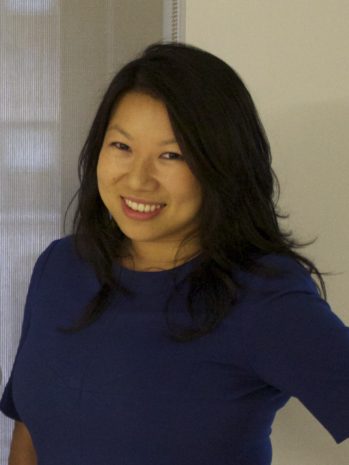Even Facing Immigration Hurdles, This Singapore Native Started a $40 Million Business
Date: February 16, 2017

“I would have started my business much earlier if not for the limitations posed by U.S. immigration laws,” says Shan-Lyn Ma, the co-founder and CEO of Zola – a $40 million modern wedding registry business.
Ma, who was born in Singapore but grew up in Australia, moved to America in 2004 to pursue an MBA at Stanford. After graduating, she took a job at Yahoo!, where she worked for two years. While Ma loved her experience at Yahoo!, she soon “started craving a startup experience.” In 2008, she moved to New York City to join the newly founded Gilt Groupe, an online shopping company. After her time at Gilt, Ma felt ready for entrepreneurship. “I finally had the experience under my belt to take the plunge,” she says.
Inspiration came when many of Ma’s friends started getting married. “I was going to a lot of weddings and all the newlyweds expressed a frustration with the classic gift registry system,” she explains. “They would say: I loved my wedding but I hated my registry.”
There are many immigrants in this country who would start companies and create jobs if there was an easier way for them to do so.
So, in 2013, Ma founded Zola, a company that would “transform wedding registries from the most frustrating part of wedding planning to the most enjoyable aspect.” Geared toward tech-savvy millennials, Zola offers a mobile app that allows couples to build customized registries with ease. And, unlike traditional wedding registries, Zola allows wedding guests to gift experiences, like a hot-air balloon ride or a winery tour.
Zola has been wildly successful. The company has raised over $16 million in venture capital funding, is the fastest-growing wedding registry company in the United States, and grossed $40 million in 2015. In the last two and a half years, the team has grown from three co-founders to 40 employees – 38 of whom are American.
But despite this success, the immigration system slowed the company’s progress. “Until I got my green card, I felt like my place in the United States was very precarious,” she says, “like I could be asked to leave the country at any time.” She adds that for an inherently risky field like entrepreneurship, the uncertainty around immigration status can be prohibitive. Although Ma and her team eventually figured out a way for Zola to sponsor her green card, “it took a lot of work to figure out how to do so in a way that would allow me to work for my own company,” she says.
Still, Ma considers herself one of the lucky ones. “There are many immigrants in this country who would start companies and create jobs if there was an easier way for them to do so,” Ma says, “but the current system stifles this entrepreneurial spirit and hurts the American economy in the process.”
